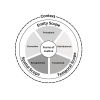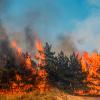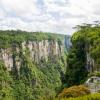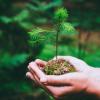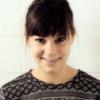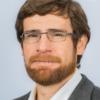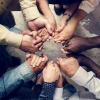
The Equity and Justice Research Group at IIASA advances the justice debate in global change research and sustainability science using mixed, systems-based, and participatory methods.
EQU research aims to contribute to achieving the Sustainable Development Goals (SDGs) by developing and applying conceptual and analytical frameworks for integrating equity and justice into systems analysis. Scientists in EQU bring a valued perspective to major global and local policy issues, including the climate crisis and biodiversity loss, by identifying and co-designing governance reforms and policy options that take account of diverse perceptions of procedural, distributive and compensatory justice.
EQU researchers pioneer innovative mixed methods, with a special focus on the complementarity of qualitative systems approaches to quantitative systems analysis, to mobilise the manifold ideas of justice and governance approaches for complex societal challenges. To bridge the gap between conceptualization and implementation, EQU researchers develop and employ participatory processes that provide a safe space to co-produce options for transformative change. Stakeholder-inclusive research means putting people's lived experience at the center to solve “real policy problems” that our societies face. We aim for systematic and transparent research and to make our processes and output accessible to all.
In our team, we appreciate and harness diversity in views and work styles and we foster an enabling and collaborative work environment. We remain self-reflexive and open-minded. The research group works closely with other IIASA research programs and external partners to position our research activities in a systems analysis framework that reconciles both hard and soft systems methodologies and is grounded in ethics.
Models, tools, datasets
Projects
Staff
News

23 July 2024
Introducing the IIASA Justice Framework
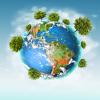
13 June 2024
Finance Innovation Festival shines a spotlight on Nature-based Solutions and Insurance
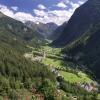
13 June 2024
2nd DISCC-AT Workshop at IIASA
Events
Focus

17 July 2024
Biodiversity lessons from nature
IIASA researchers Silvia Artuso and Juliette Martin reflect on a recent workshop presented at the Institute as part of the IIASA School Engagement Initiative, during which they introduced students to systems analysis and took them on an adventure to explore the amazing biodiversity of Laxenburg park.
27 June 2024
fairSTREAM

Publications
Martin, J. , Kanade, R., Bhadbhade, N., Joy, K.J., Thomas, B.K., Willaarts, B. , & Hanger-Kopp, S. (2024). Review of the food, water and biodiversity nexus in India. Environmental Science & Policy 159 e103826. 10.1016/j.envsci.2024.103826. Palazzo, A. , Kahil, T. , Willaarts, B. , Burek, P. , van Dijk, M., Tang, T. , Magnuszewski, P., Havlík, P. , Langan, S. , & Wada, Y. (2024). Assessing sustainable development pathways for water, food, and energy security in a transboundary river basin. Environmental Development e101030. 10.1016/j.envdev.2024.101030. (In Press) Moersberger, H., Valdez, J., Martin, J.G.C. , Junker, J., Georgieva, I. , Bauer, S., Beja, P., Breeze, T.D., Fernandez, M., Fernández, N., Brotons, L., Jandt, U., Bruelheide, H., Kissling, W.D., Langer, C., Liquete, C., Lumbierres, M., Solheim, A.L., Maes, J., Morán‐Ordóñez, A., Moreira, F., Pe'er, G., Santana, J., Shamoun‐Baranes, J., Smets, B., Capinha, C., McCallum, I. , Pereira, H.M., & Bonn, A. (2024). Biodiversity monitoring in Europe: User and policy needs. Conservation Letters e13038. 10.1111/conl.13038. Eker, S. , Lenton, T.M., Powell, T., Scheffran, J., Smith, S.R., Swamy, D., & Zimm, C. (2024). Cross-system interactions for positive tipping cascades. Earth System Dynamics 15 (3) 789-800. 10.5194/esd-15-789-2024. Handmer, J., Monson, R., & Schinko, T. (2024). Addressing the Diversity of Loss and Damage in Pacific Island Countries to Foster a Just Transition Towards a Climate-Resilient Future. SSRN Electronic Journal 10.2139/ssrn.4847908. (Submitted)


